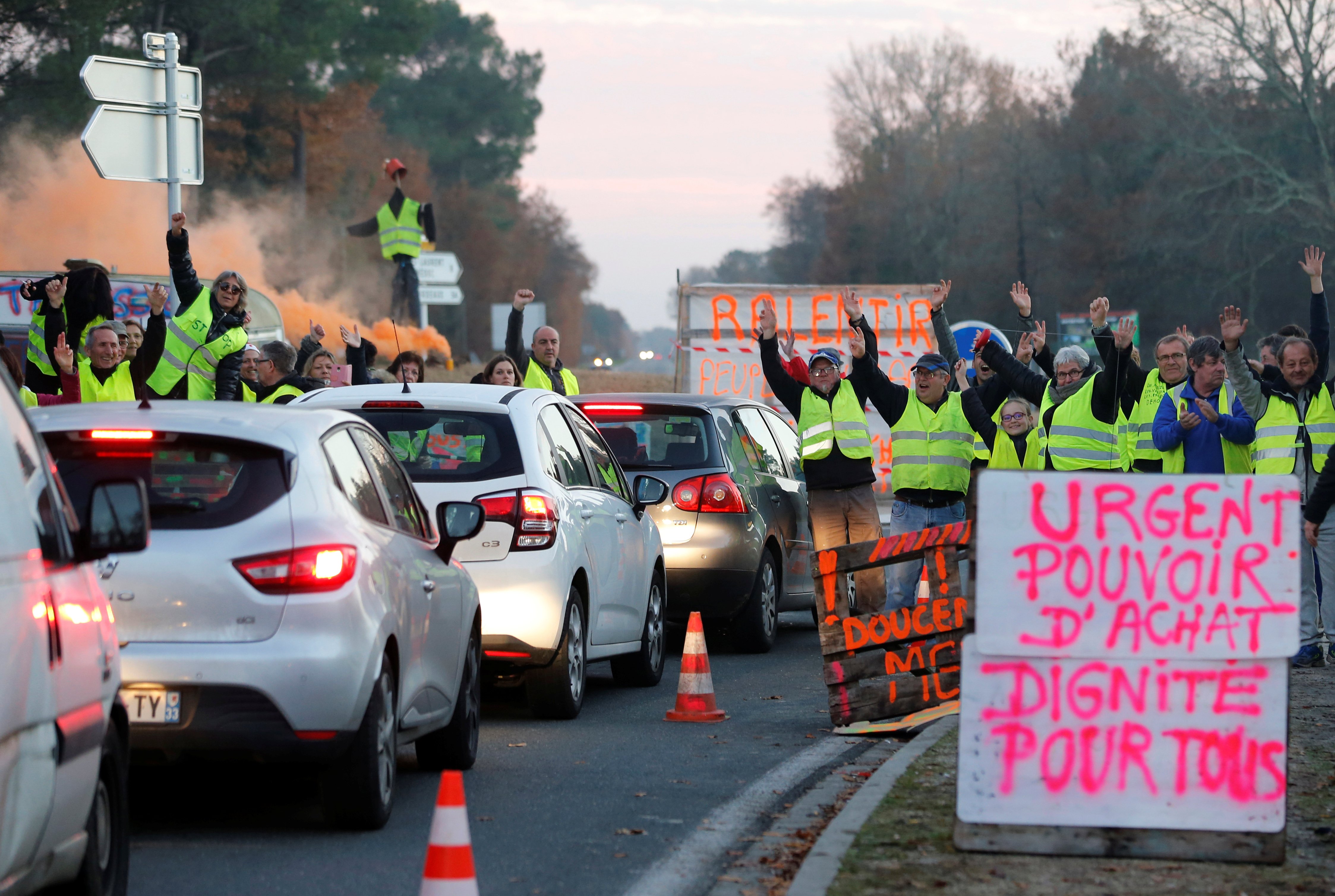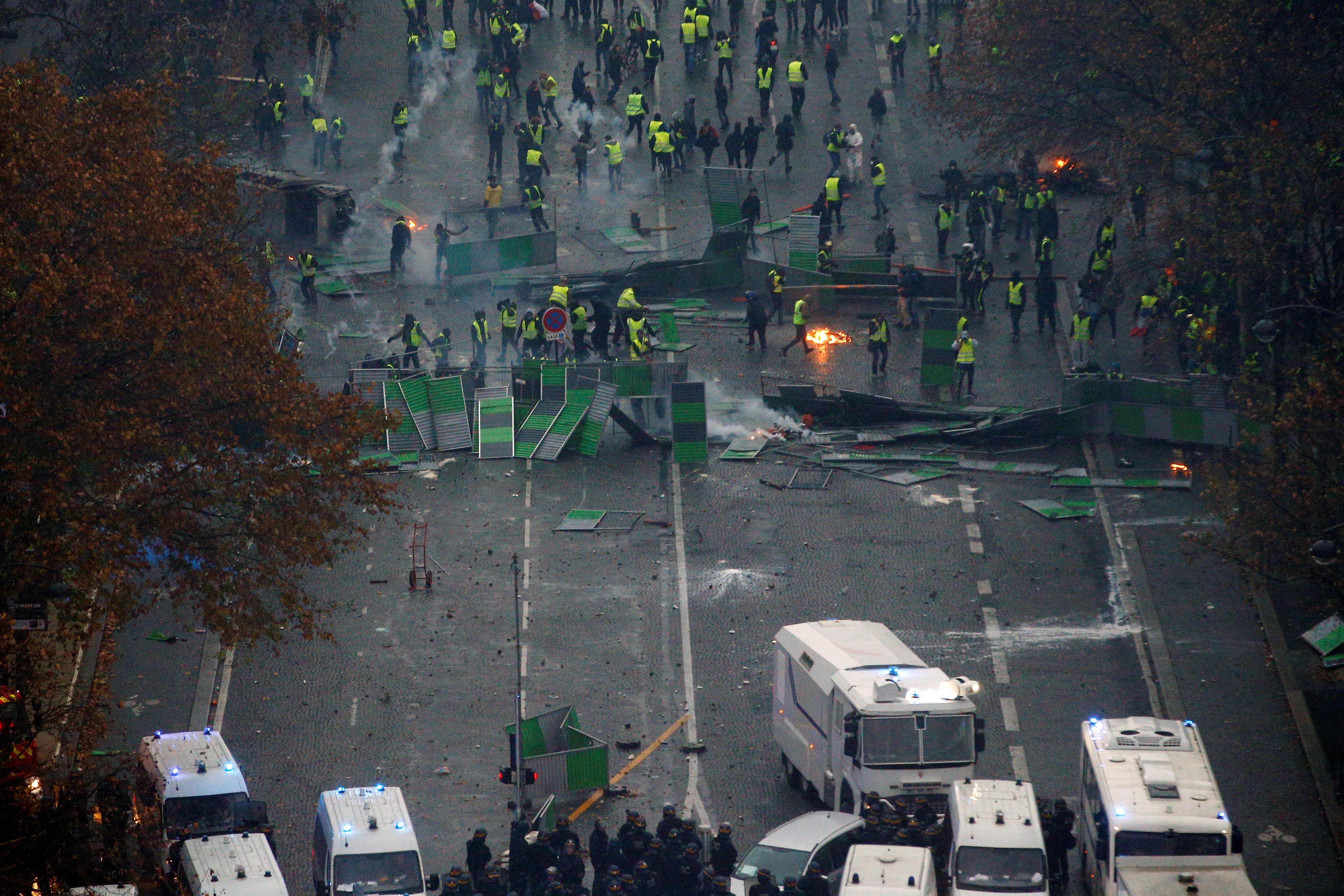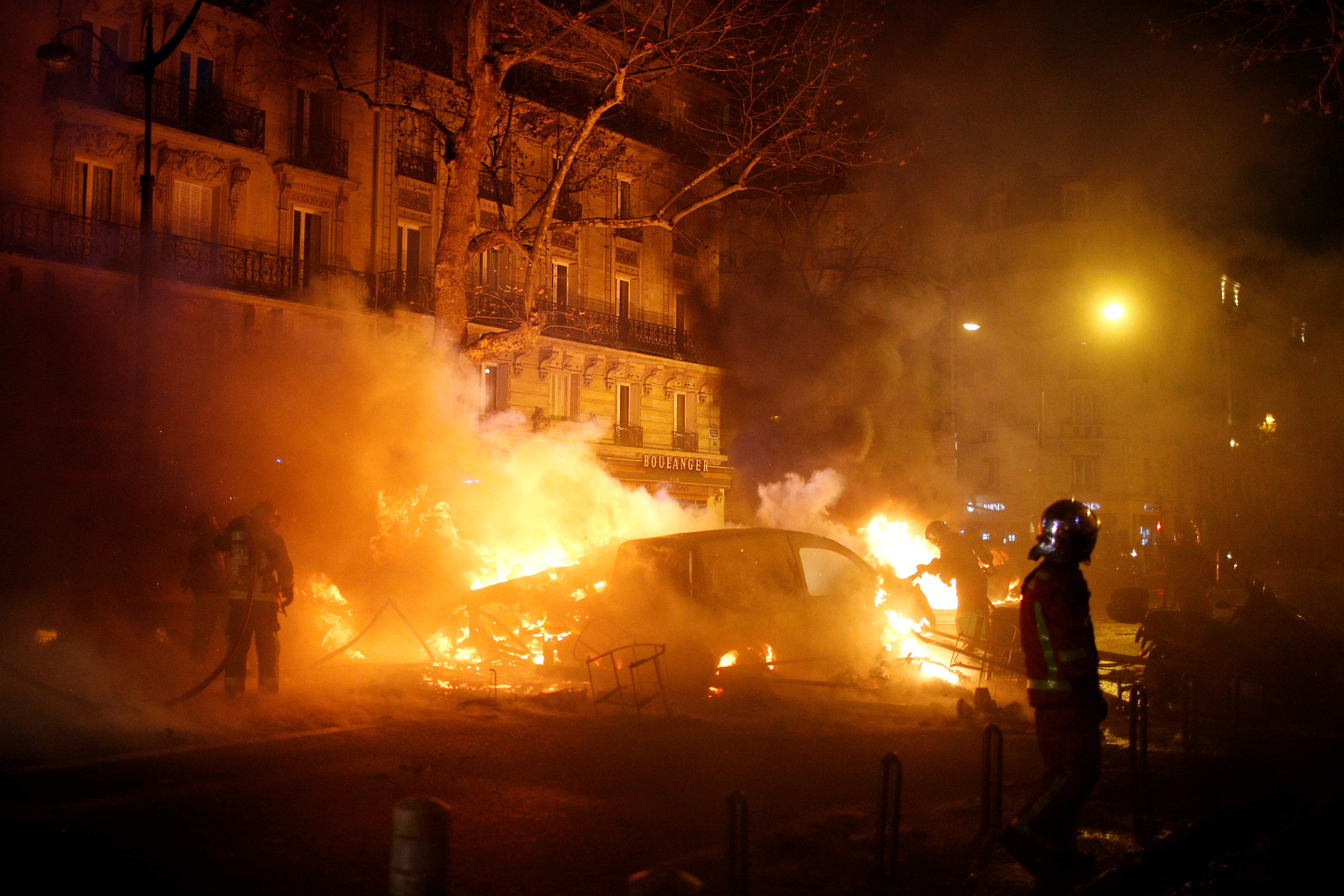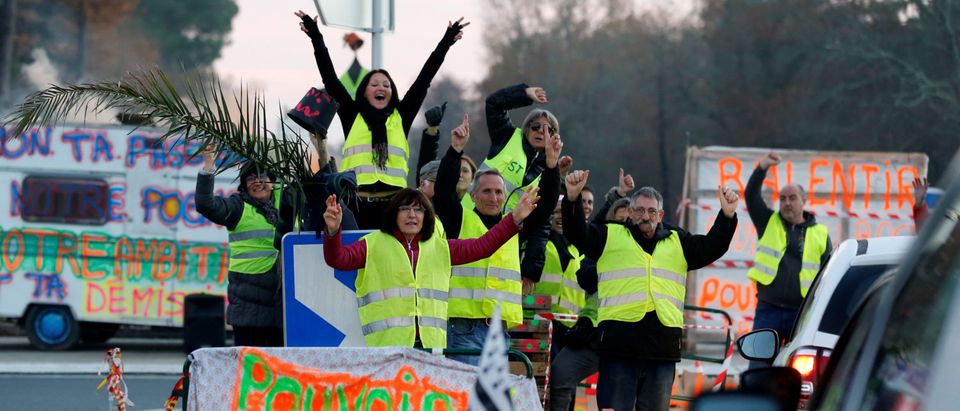- France might be ahead of the curve when it comes to climate policy backlash.
- President Emmanuel Macron caved to demands from “yellow vests” over planned carbon taxes.
- More backlash like this could be seen as countries try to phase out gas-powered cars.
The French love a good riot, but the political backlash to the French government’s plans to increase carbon taxes on fuel could be a harbinger of what’s to come in countries committed to the global warming crusade.
Calls from the United Nations and environmentalists for the world to “do more” to stem projected global warming might run up against economic realities. But France could be a taste of what’s to come if more governments try to tax carbon dioxide emissions.
“In some senses the French are ahead of the rest of the world on this,” said John Constable, energy editor at the Global Warming Policy Forum, a U.K.-based think tank. (RELATED: The UN Is Trying To Prime The World For More Carbon Tax Revolts)
Constable told The Daily Caller News Foundation because of France’s heavy reliance on emissions-free nuclear power, the government has to look beyond power plants to achieve its global warming goals. Macron raised fuel taxes already in 2018 to cut down on oil demand, but it’s hard for working-class people to sacrifice their livelihoods for speculative climate benefits in the future.
“France is now heading into the zone where the marginal cost of emissions reduction begins to increase sharply,” Constable said. “They’ve done the easy bit, electricity, and are now beginning to coerce the more difficult sectors such as transport, which of course is already heavily taxed.”

Protesters wearing yellow vests, the symbol of a French drivers’ protest against higher diesel fuel prices, occupy a roundabout in Cissac-Medoc, France, December 5, 2018. The slogan reads “Urgent, purchase power, dignity for all”. REUTERS/Regis Duvignau.
Carbon taxes on diesel and gasoline were set to take effect in January. French President Emmanuel Macron agreed to delay implementing the taxes for six months in the face of protests, but that might not be enough to satisfy demonstrators.
“The extra burden imposed by Mr. Macron has caused something to snap, not demand but the temper of the people,” Constable said.
“Broadly speaking, I would judge that French popular anger is the shape of things to come globally, as climate policies begin to move into more difficult sectors,” Constable said.
France is only the latest country to reject new carbon taxes. Ontario Premier Doug Ford and his conservative coalition were swept into power by Canadian voters in June on a platform that opposed carbon taxes.
Washington voters rejected a ballot measure in November to tax carbon dioxide emissions from industrial sources in their state. It’s the second time Washington voters rejected a carbon tax ballot initiative.

A view shows a barricade with police forces and protesters wearing yellow vests, a symbol of a French drivers’ protest against higher diesel taxes, during clashes as part of a demonstration near the Place de l’Etoile in Paris, France, December 1, 2018. REUTERS/Stephane Mahe.
Australian lawmakers voted to repeal their country’s carbon tax in 2014. Former Prime Minister Tony Abbott led his conservative party to victory in the previous year’s elections on the promise to repeal the carbon tax.
However, France’s violent reaction to new carbon taxes is part of the country’s “romantic” view of political uprisings, according to an expert on French politics and history.
“In France the governments understand only violence, and since 1789, people have a romantic approach to ‘Revolution,'” George Chabert, a professor at the Norwegian University of Science and Technology, told TheDCNF. “Apparently, it is working this time as well.”
Carbon taxes were the breaking point for the thousands of gilet jaunes, or “yellow vests,” who took to the streets in late November. But the protests, considered the worst to hit Paris in 50 years, were also fueled by years of pent-up resentment against Macron’s policies.
“Since Macron came to power, he has cut taxes for the rich, ‘simplified’ the Work Laws, cut on pensions, and added billions of euros of new taxes to the working class and middle class,” Chabert said.

Firemen extinguish burning cars set afire by protesters wearing yellow vests, a symbol of a French drivers’ protest against higher diesel fuel taxes, during clashes near the Place de l’Etoile in Paris, France, December 1, 2018. REUTERS/Stephane Mahe.
“The new ‘ecological’ taxes, most of which was to be used in anything but ecology, are just one more,” Chabert said. “Many new taxes are programmed to come in effect until 2020.”
Many protesters also called on Macron to resign. Yellow vests say Macron is out of touch and centralizing power at the expense of working class citizens.
“Emmanuel Macron is a little boy who has always been told he’s the best, he’s always been idolised. He’s never been told ‘you shouldn’t do that’. The guy thinks he’s God!” Claudio, a 47-year-old Frenchman, told AFP.
“He deserves to have his head chopped off, symbolically,” said Claudio, who refused to give his full name to reporters.
Other protesters compared Macron to Napoleon and the pre-revolutionary Ancien Regime.
“He’s the king. It’s as if we’re in the Middle Ages!” echoed Philippe, a 74-year-old yellow vest leader.
Macron agreed to delay raising fuel taxes in January, but many protesters and political opponents don’t see the issue as settled. One self-proclaimed leader of the yellow vests said “we will not settle for crumbs.”
However, Macron is unlikely to abandon his green agenda. An ardent supporter of the Paris climate accord, Macron pledged to decarbonize French energy use by 2050 and was initially unyielding to protesters’ demands.
Follow Michael on Facebook and Twitter
All content created by the Daily Caller News Foundation, an independent and nonpartisan newswire service, is available without charge to any legitimate news publisher that can provide a large audience. All republished articles must include our logo, our reporter’s byline and their DCNF affiliation. For any questions about our guidelines or partnering with us, please contact licensing@dailycallernewsfoundation.org.


